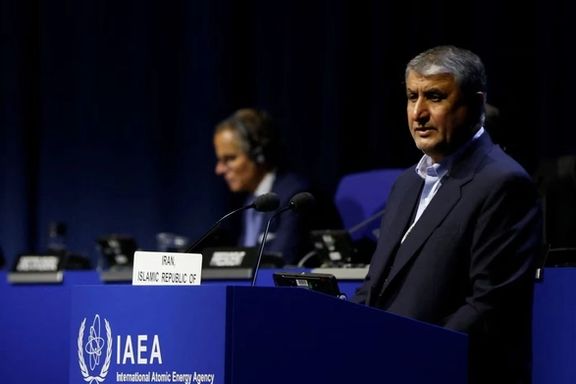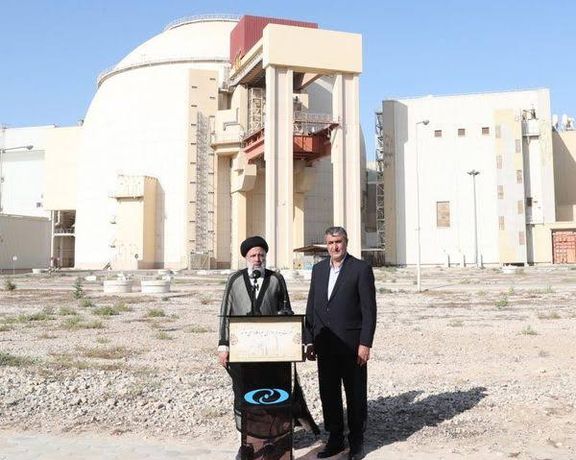Iran’s Nuclear Chief Admits Country Blighted By Year Of Challenges

The past year was a year full of tensions and Iran faced complex behaviors by Western powers, nuclear chief Mohammad Eslami said at the Friday Prayers in Tehran.
Eslami who is the head of the Atomic Energy Organization of Iran (AEOI) addressed the Friday congregation at its traditional venue in Tehran University, trying to portray the country’s nuclear program as a beacon of its scientific achievements and useful for civilian purposes.
Eslami also reiterated a common propaganda point by the Islamic Republic that Western powers do not want Iran and similar countries to gain access to technology, an argument debunked by economic progress China, South Korea, and others have made.
“New technologies are the arena of domination,” Eslami claimed, adding that Iran is being “punished for its progress.”
Anti-regime Iranians know this well and hold the Islamic Republic responsible for their economic pain and the country’s international isolation, as well as lack of freedoms and repression.
Iran’s secret nuclear program was revealed in 2002, followed by international and particularly Western pressure to come clean and accept monitoring by the International Atomic Energy Agency (IAEA), as well as limit the degree of its uranium enrichment to civilian uses.
After years of diplomacy, world powers, including Russia and China, agreed to impose sanctions on Tehran to force it to come to an agreement. In 2015, the Joint Comprehensive Plan of Action (JCPOA) was signed between Iran, the United States, United Kingdom, France, Germany, Russia and China, suspending the sanction in exchange for limiting the nuclear program.
However, in 2018, former US President Donald Trump withdrew from the agreement, criticizing it as a weak deal that would allow Iran to pursue nuclear weapons once the agreement’s sunset clauses kicked in.
Eslami said that despite Western declarations of a desire to return to the JCPOA, “they were not committed to their own rationale and words,” putting Iran in a tough position. “They exceeded in putting pressures,” he added.
The US withdrawal was followed by new American sanctions on Iran’s economy, which began to seriously affect its finances. Tehran announced that it would no longer abide by JCPOA limitations and would increase both the quantity and level of its enrichment. However, once President Joe Biden won the 2020 election and vowed to return to the JCPOA, Tehran announced its decision to increase the enrichment level to 20 and then 60 percent, getting closer to weapons-grade uranium.

Negotiation followed in Vienna from April 2021, but by September 2022 the talks had reached a deadlock. Iran is now accumulating 60-percent uranium, while the US is maintaining the sanctions and saying that Tehran was deceptive during the talks and a return to the JCPOA is no longer on its agenda.
While Eslami in his speech tried to claim that the nuclear program has a useful civilian role, 60-percent enrichment can only have a military purpose – reaching the 90-percent weapons grade level.
The economic cost of the nuclear program has been very high for Iran, keeping economic growth near zero for more than a decade, leading to widespread poverty, antigovernment protests and one of the worst government repressions of the 21st century.
Opponents argue that the government did not need to make the country a hostage to its nuclear program, which has had virtually no economic benefit and only made the people of Iran suffer the price of punishing sanctions.
If the country had been transparent and abided by non-proliferation rules, it could have bought enriched uranium for civilian purposes from other countries. It’s intransigence has led to nothing but global isolation and the suffering of the Iranian people.